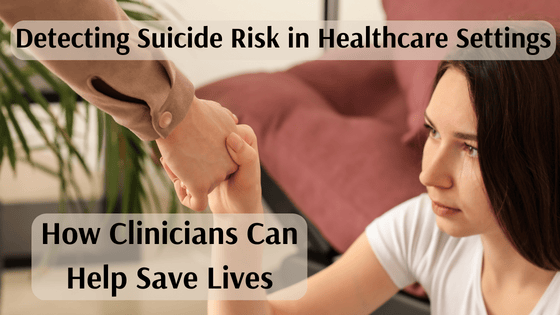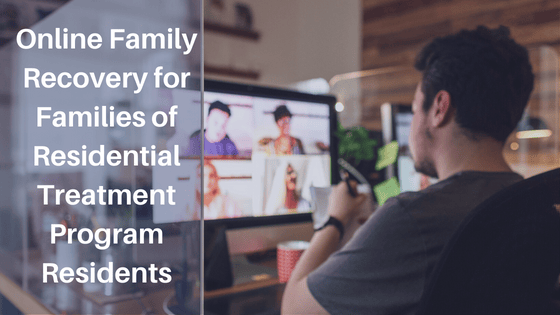In the digital age, telemental health services have become increasingly prevalent, offering a convenient and effective means of therapy. As a behavioral health provider, it is crucial to consider not only the safeguarding of your clients' mental well-being but also their information security. This article explores the responsibilities of behavioral health providers in informing clients about protecting their data while using telehealth services.
Telehealth Explorer
We’ve invited Dr. Sheri Kingsdorf, an Assistant Professor at Masaryk University in the Czech Republic and a doctoral-level Board Certified Behavior Analyst (BCBA-D), to share insights on Applied Behavioral Analysis (ABA) interventions with families via telehealth, and how organizations can best prepare clinicians and families to use telehealth with great success. In a conversation with TCI’s Ray Barrett, Dr. Kingsdorf identifies the ways we can support families with children with neurodevelopmental conditions using telehealth.
The effects of COVID on telehealth have led to a viable and sustainable solution to many of the challenges facing healthcare delivery in the U.S. Virtual healthcare services are now one of the fastest-growing areas in the healthcare industry.
According to Centers for Medicare & Medicaid Services (CMS) reports, from March to October 2020, 68 million telehealth services were delivered, showing a 2,700% increase compared to 2019 reports.
We’ve invited Kathleen Shannon to discuss the process of pursuing multi-state licensure for licensed behavioral health professionals.
With the advent of telehealth, there are more and more possibilities for practicing in various areas. Some providers may have a particular niche with a demand for services. For others, continuity of care is essential. For example, Kathleen Shannon noted that when the pandemic started and some people had to move out of state, there were issues with providers not being able to continue care because they lacked licensure in the particular state. Ms. Shannon notes that complications arise as different states have varying regulations and requirements for licensure.
We’ve invited Dr. Tom Milam, the Chief Medical Officer for Iris Telehealth, to discuss approaches to addressing behavioral wait times. Dr. Milam has been a psychiatrist for over 25 years, and throughout his career, he’s seen many changes in the field and different approaches to care. He notes that there’s always been a shortage of providers for various reasons.
“Without some degree of regulation, it is difficult to connect with another person, and without connection, there is minimal reasoning. Regulate, relate, then reason.”
-(Perry & Winfrey, 2021; What Happened to You?)
One of the principles of a Trauma-Informed System (TIS) is Understanding Stress and Trauma (see here for a list of TIS principles). As clinicians, when we can understand the trauma and stress of our child and adolescent clients, we are more likely to act compassionately and take well-informed steps toward promoting our clients’ wellness. Our children and youth are more stressed than ever in the context of increases in certain mental health symptoms, including depressive symptoms and suicidal ideation; and increased psychological distress as a long-term impact of the COVID-19 crisis (see the U.S. Surgeon General’s Advisory here and the most recent CDC Youth report here).
How Clinicians Can Help Save Lives
Effective suicide prevention depends on early detection so that individuals experiencing suicidal thoughts or struggles can be connected to help as soon as possible. Healthcare settings serve as a perfect opportunity to spot individuals in distress since up to 45% of people who die by suicide visit their primary care physician in the month prior to their death and 39% make an emergency department visit in the year prior to their death. Fortunately, evidence-based tools exist to identify patients who may be at risk and steps can be taken to reduce suicide mortality. All healthcare providers can play a role in preventing this leading cause of death.
Since the COVID-19 pandemic, behavioral health services online have become a new normal of consumer expectation: clients want effective treatment in-person and online. To offer effective behavioral health services online, clinicians stay mindful of nonverbal and verbal communication, remain flexible, and adjust curriculum and process as needed.
When patients are admitted to residential care facilities for mental health or addiction issues, it is often expected that family members are part of the recovery team. Most family members do the best they can, and they often need guidance and structure to help them navigate recovery from their loved one’s illness and manage the stress and fears that come up as their loved ones approach discharge. Sierra Tucson Addiction Treatment Center is a leader in recovery from behavioral and mental illness and addiction and is committed to offering support to families of loved ones who are in treatment.







The course was so informative and I was glued to my screen for the entire duration. I received so much knowledge concerning ethics in telehealth and I am greatly encouraged to read about all the standards and policies that pertain to my practice. Thank you!.